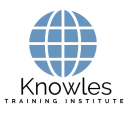Knowledge Management Training Course in Austria
Our corporate training course is also available in Vienna, Graz, Linz, Salzburg, Innsbruck, Klagenfurt, Villach, Wels, Sankt Pölten, Dornbirn, Steyr, Wiener Neustadt, Feldkirch, Bregenz, Wolfsberg, Baden bei Wien, Klosterneuburg, Leoben, Krems an der Donau, Traun, Amstetten, Lustenau, Kapfenberg, Mödling, Hallein, Kufstein, Traiskirchen, Schwechat, Braunau am Inn, Stockerau, Hallstatt, Zell am See, Sölden, Mayrhofen, St. Anton am Arlberg, Ischgl, Kitzbühel, Gmunden, Bad Gastein, St. Wolfgang.
 In the ever-evolving landscape of modern business, one of the most invaluable assets a company possesses is knowledge. The ability to harness, manage, and leverage this knowledge effectively can spell the difference between success and stagnation. Welcome to the Knowledge Management Training Course in Austria, where we embark on a transformative journey to unlock the full potential of organizational knowledge.
In the ever-evolving landscape of modern business, one of the most invaluable assets a company possesses is knowledge. The ability to harness, manage, and leverage this knowledge effectively can spell the difference between success and stagnation. Welcome to the Knowledge Management Training Course in Austria, where we embark on a transformative journey to unlock the full potential of organizational knowledge.
Throughout this immersive course, participants will delve into the intricacies of knowledge management, exploring innovative strategies and best practices tailored to the unique context of Austrian businesses. From multinational corporations to small enterprises, the principles of knowledge management are universal, yet the implementation must be finely attuned to the specific needs and challenges of each organization.
Our expert instructors bring years of experience and insights to the table, guiding participants through a comprehensive curriculum designed to equip them with the tools, techniques, and mindset necessary to become proficient knowledge managers. Through a blend of theoretical frameworks, case studies, interactive exercises, and real-world applications, attendees will gain a deep understanding of the critical role knowledge plays in driving organizational success.
As we navigate through the course, participants will explore various facets of knowledge management, including knowledge creation, capture, storage, dissemination, and application. They will learn how to develop robust knowledge management strategies, leverage technology effectively, foster a culture of knowledge sharing and collaboration, and measure the impact of knowledge management initiatives on organizational performance. By the end of the training, participants will emerge with the knowledge and confidence to lead their organizations towards excellence in knowledge management, driving innovation, growth, and competitive advantage in the dynamic business landscape of Austria.
Join us in the Knowledge Management Training Course in Austria, where we unlock the power of knowledge to propel organizations to new heights of success and prosperity.
Who Should Attend this Knowledge Management Training Course in Austria
In today’s fast-paced and highly competitive business environment, organizations are increasingly recognizing the strategic importance of effective knowledge management. Welcome to the Knowledge Management Training Course in Austria, where we delve into the principles, methodologies, and best practices that underpin successful knowledge management initiatives. Throughout this comprehensive training program, participants will embark on a journey to unlock the potential of their organizational knowledge and harness it as a key driver of innovation, productivity, and competitive advantage.
This training course is designed to provide participants with a deep understanding of the fundamentals of knowledge management and equip them with practical skills to implement robust knowledge management strategies within their organizations. From understanding the lifecycle of knowledge to developing strategies for knowledge creation, capture, storage, sharing, and application, participants will gain insights into every aspect of effective knowledge management. Through a combination of theoretical insights, real-world case studies, interactive discussions, and hands-on exercises, attendees will learn how to navigate the complexities of knowledge management in today’s digital age.
By the end of this training program, participants will emerge with the knowledge, skills, and confidence to drive meaningful change within their organizations through effective knowledge management practices. Join us in the Knowledge Management Training Course in Austria and take the first step towards becoming a proficient knowledge manager, empowering your organization to thrive in the knowledge economy of the 21st century.
- Executives
- Team Leaders
- Entrepreneurs
- Educators
- Recent Graduates
Course Duration for Knowledge Management Training Course in Austria
The Knowledge Management Training Course in Austria offers flexible duration options to suit diverse learning needs. Participants can opt for a comprehensive 3-day intensive training program, providing in-depth exploration of knowledge management principles and practices. Alternatively, there are options for a condensed 1-day session, a focused half-day workshop, or concise 90-minute and 60-minute seminars, each tailored to deliver key insights and practical takeaways on knowledge management essentials.
- 2 Full Days
- 9 a.m to 5 p.m
Course Benefits of Knowledge Management Training Course in Austria
The Knowledge Management Training Course equips participants with essential skills and strategies to effectively manage and leverage knowledge within their organizations.
- Improved decision-making processes based on access to relevant and timely information.
- Enhanced collaboration and knowledge sharing among team members.
- Increased innovation and problem-solving capabilities through the effective use of organizational knowledge.
- Streamlined processes and workflows resulting from optimized knowledge management systems.
- Reduced duplication of efforts and errors by ensuring access to accurate and up-to-date information.
- Greater employee satisfaction and engagement through improved access to resources and expertise.
- Enhanced organizational resilience and adaptability to changes in the business environment.
- Improved customer satisfaction through faster response times and better-informed interactions.
- Enhanced competitive advantage by leveraging organizational knowledge assets effectively.
- Strengthened organizational culture built on a foundation of knowledge sharing and continuous learning.
Course Objectives for Knowledge Management Training Course in Austria
The Knowledge Management Training Course aims to equip participants with the necessary skills and strategies to effectively manage and leverage knowledge within their organizations. Through this course, attendees will learn how to optimize decision-making processes, foster collaboration, and drive innovation by harnessing organizational knowledge assets.
- Develop strategies to identify and capture tacit and explicit knowledge within the organization.
- Implement knowledge management systems and tools to organize and disseminate information effectively.
- Foster a culture of knowledge sharing and collaboration among team members.
- Develop policies and procedures to ensure the accuracy and integrity of organizational knowledge.
- Train employees on knowledge management best practices and usage of knowledge management tools.
- Establish metrics and KPIs to measure the effectiveness of knowledge management initiatives.
- Integrate knowledge management practices into existing business processes and workflows.
- Identify and address barriers to knowledge sharing and collaboration within the organization.
- Promote continuous learning and professional development opportunities for employees.
- Ensure compliance with data protection and confidentiality regulations in managing organizational knowledge.
- Conduct regular audits and reviews of knowledge management processes to identify areas for improvement.
- Align knowledge management strategies with organizational goals and objectives to maximize impact and value.
Course Content for Knowledge Management Training Course in Austria
The Knowledge Management Training Course offers comprehensive insights and practical techniques to effectively manage and leverage organizational knowledge. Participants will explore strategies to identify, capture, and disseminate both tacit and explicit knowledge, fostering a culture of collaboration and continuous learning.
- Strategies for Knowledge Identification and Capture:
- Conducting knowledge audits to identify valuable organizational knowledge.
- Implementing knowledge mapping techniques to visualize knowledge assets.
- Leveraging communities of practice to capture tacit knowledge from subject matter experts.
- Implementation of Knowledge Management Systems and Tools:
- Selecting and implementing knowledge management software tailored to organizational needs.
- Designing knowledge repositories and databases for efficient information storage and retrieval.
- Integrating knowledge management tools with existing IT infrastructure and workflows.
- Cultivating a Culture of Knowledge Sharing:
- Establishing incentives and recognition programs to encourage knowledge sharing behaviors.
- Facilitating knowledge sharing sessions and communities to foster collaboration.
- Providing training on effective communication and knowledge sharing techniques.
- Development of Policies and Procedures:
- Drafting policies to govern knowledge creation, sharing, and usage within the organization.
- Implementing quality control measures to ensure the accuracy and integrity of shared knowledge.
- Establishing protocols for knowledge documentation, version control, and access permissions.
- Employee Training on Knowledge Management Best Practices:
- Conducting workshops and seminars on knowledge management fundamentals.
- Providing hands-on training on the usage of knowledge management tools and platforms.
- Offering certification programs to recognize proficiency in knowledge management.
- Establishment of Metrics and KPIs:
- Defining key performance indicators (KPIs) to measure the effectiveness of knowledge management initiatives.
- Implementing data analytics tools to track knowledge sharing activities and usage patterns.
- Conducting regular performance reviews to assess progress towards knowledge management goals.
- Integration with Business Processes:
- Embedding knowledge management practices into existing project management methodologies.
- Incorporating knowledge sharing checkpoints into workflow processes and decision-making frameworks.
- Aligning knowledge management initiatives with strategic business objectives.
- Identification and Addressing of Barriers:
- Conducting root cause analysis to identify barriers to knowledge sharing and collaboration.
- Implementing strategies to overcome cultural resistance and organizational silos.
- Providing leadership training to promote a supportive environment for knowledge sharing.
- Promotion of Continuous Learning:
- Offering opportunities for professional development and upskilling in knowledge management.
- Establishing mentorship programs to facilitate knowledge transfer between generations.
- Encouraging participation in industry conferences, webinars, and knowledge sharing forums.
- Ensuring Compliance:
- Developing protocols to safeguard sensitive and proprietary information.
- Providing training on data protection regulations and confidentiality requirements.
- Implementing access controls and encryption measures to protect intellectual property.
- Conducting Audits and Reviews:
- Performing regular audits of knowledge management processes and systems.
- Soliciting feedback from employees and stakeholders to identify areas for improvement.
- Conducting post-implementation reviews to evaluate the impact of knowledge management initiatives.
- Alignment with Organizational Goals:
- Establishing strategic partnerships between knowledge management and business units.
- Setting clear objectives and milestones for knowledge management initiatives.
- Monitoring progress and adjusting strategies to ensure alignment with organizational priorities.
Course Fees for Knowledge Management Training Course in Austria
The Knowledge Management Training Course in Austria offers flexible pricing options tailored to suit the needs of participants. With four distinct pricing tiers available, individuals and organizations can select the package that aligns best with their budget and requirements. Whether opting for a comprehensive training package or a more focused learning experience, participants can access top-notch knowledge management expertise at competitive rates.
- USD 679.97 For a 60-minute Lunch Talk Session.
- USD 289.97 For a Half Day Course Per Participant.
- USD 439.97 For a 1 Day Course Per Participant.
- USD 589.97 For a 2 Day Course Per Participant.
- Discounts available for more than 2 participants.
Upcoming Course and Course Brochure Download for Knowledge Management Training Course in Austria
Stay informed about the latest updates and avail brochures for the Knowledge Management Training Course in Austria. Explore cutting-edge strategies and tools to effectively manage organizational knowledge and drive business success. Contact us today to receive detailed information and stay ahead in the dynamic field of knowledge management.

The Best Corporate Training Courses in Austria, Corporate Training Courses in Austria
